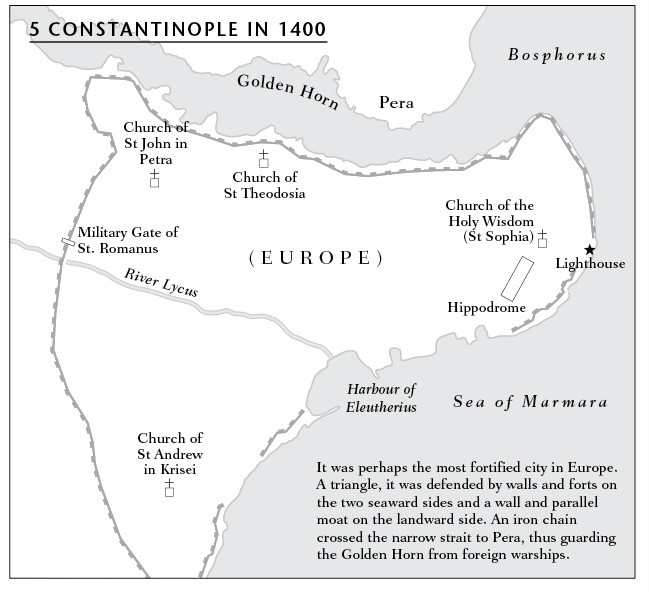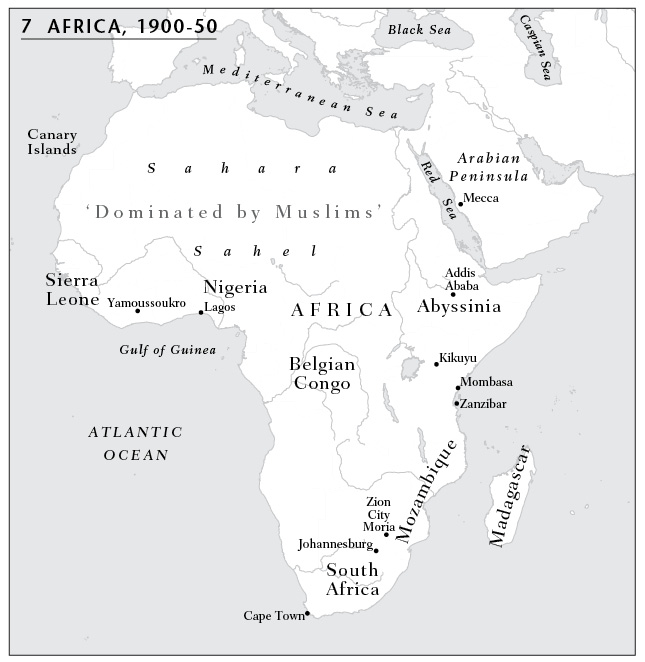Geoffrey Blainey
Rowman & Littlefield
Lanham Boulder New York Toronto Plymouth, UK
Published by Rowman & Littlefield
4501 Forbes Boulevard, Suite 200, Lanham, Maryland 20706
www.rowman.com
10 Thornbury Road, Plymouth PL6 7PP, United Kingdom
Copyright 2011 by Geoffrey Blainey
First published by Penguin Group (Australia), 2011
First Rowman & Littlefield edition, 2014
All rights reserved. No part of this book may be reproduced in any form or by any electronic or mechanical means, including information storage and retrieval systems, without written permission from the publisher, except by a reviewer who may quote passages in a review.
British Library Cataloguing in Publication Information Available
Library of Congress Cataloging-in-Publication Data
Blainey, Geoffrey.
A short history of Christianity / Geoffrey Blainey.
pages cm
Includes bibliographical references and index.
ISBN 978-1-4422-2589-3 (cloth : alk. paper) ISBN 978-1-4422-2590-9 (electronic) 1. Church history. I. Title.
BR145.3.B57 2013
270dc23
2013029361
 The paper used in this publication meets the minimum requirements of American National Standard for Information SciencesPermanence of Paper for Printed Library Materials, ANSI/NISO Z39.48-1992.
The paper used in this publication meets the minimum requirements of American National Standard for Information SciencesPermanence of Paper for Printed Library Materials, ANSI/NISO Z39.48-1992.
Printed in the United States of America
PREFACE
To write a history of Christianity is fascinating, frustrating and even perilous. It is fascinating because of the way it shaped western civilisation, and the long periods in which it affected peoples way of life. It is frustrating because some parts of the history are wrapped in mystery. In its opening years the miraculous is rarely far away, and some of the Christian precepts come down to us in the form of parables, allegories and even riddles. To write its history is also perilous because it is punctuated with controversy, and on each opposing side those who argued and even fought were backed by what they believed were invincible arguments. I have tried to see both sides with some sympathy.
A few scholars argue that Jesus Christ, the founder of the religion, did not even exist. They rightly point out that contemporary references to him were extremely rare. My own conclusion is that, by the standard of the times, his life is astonishingly documented. He did not become well known until the last few years of his life, and then only in one small outpost of the Roman Empire. And yet, of all the people who were his contemporaries and achieved no high office and won no fame outside their own country, Jesuss life and teachings are amongst the most documented.
Numerous small books or gospels were written about him, and four are famous. Known as the gospels of Matthew, Mark, Luke and John, all except one were finalised within fifty years of Jesuss death. Other stories and memoirs were written, by hand, of course. The problem is the sheer multitude of detail and its inconsistencies and contradictions. Eventually, there arose a huge industry based on discussions of those gospels and a shelf full of other early writings. In the following 1800 years, more handwritten and printed books in the western world centred on the life of Jesus than on any other topic. This intellectual energy was generated, century upon century, partly because the evidence about him was abundant and divergent. Therefore, anyone writing about his short life and the long history of Christianity has to weigh conflicting or inconsistent evidence again and again. The notes at the end of this book are brief guides to some of the evidence I used.
I investigated this story as a historian, not as a theologian. I wished to educate myself as well as others. In writing it, I had in mind a variety of general readers and also historians who work in other fields and have faint knowledge of Christian history. On the assumption that many readers would have little knowledge of Christian theology, I have avoided, as far as possible, the more technical terms.
In some chapters the beliefs of the mass of people receive attention. Though it is not easy to ascertain what stonemasons and housewives thought 500 or 1500 years ago, I sometimes attempt this difficult task, finding clues along the way. Thus, I describe a Christian woman travelling as a pilgrim to Jerusalem in the fourth century and the funeral of a Christian slave in the United States in the nineteenth century.
One dilemma was deciding how many pages to give to continuity as distinct from change. If change is always allowed to hold the central place in a history, then dispute gains undue emphasis; for in the history of a religion nothing of importance changes without disagreement. As Christianity covers twenty centuries, and many lands, the disputes can seem endless. And yet many centuries are quiet rather than disputatious.
The book is not intended to be a short encyclopedia. Much is omitted. When I was about three-quarters of the way through the writing, I deleted more than twenty of every 100 pages I had written. Some episodes were omitted or pruned to allow more space, in the final version, for Paul of Tarsus, Francis of Assisi, Zwingli of Zurich, John Wesley of England, and dozens of other influential individuals. Doubters and rationalists also have a place in this book, for they are part of the many-sided history of Christianity.
Geoffrey Blainey
Melbourne
Part One
THE BOY FROM GALILEE
Of all the known people of the world, living or dead, Jesus is the most influential.
His birth was viewed as a momentous event, and still is. When the chronology now used in the world was created, the assumed date of his birth was singled out and named as Year One. The decision was not quite accurate. The exact year of his birth is not known. Even today, various facets of his birth, life and death are veiled in mystery and argument, and yet his influence on human history has been profound.
Jesus was Jewish, in race and culture and religion. The name Jew is derived from Judah, which occupied half of the narrow strip of the territory flanking the Mediterranean Sea long known as Palestine. Long ago, Jesuss ancestors had lived elsewhere. Traditionally they were known as the Hebrews, meaning the people who crossed over: in essence they were travellers or wanderers.

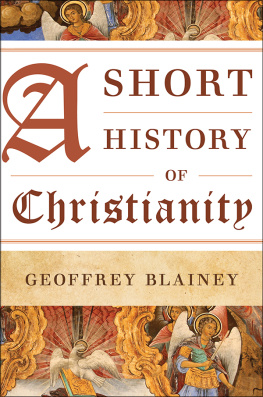
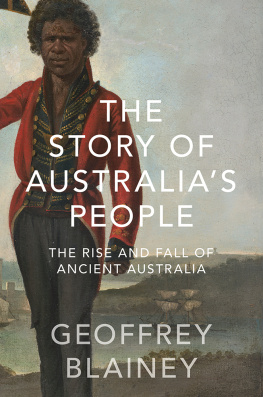
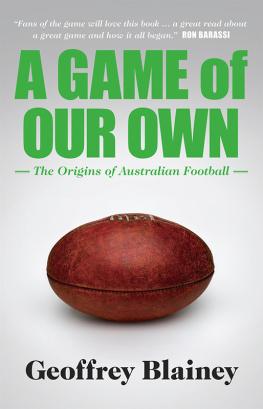
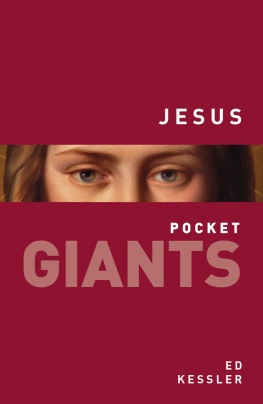

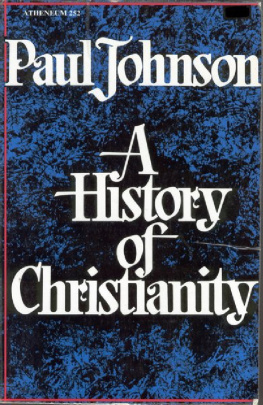

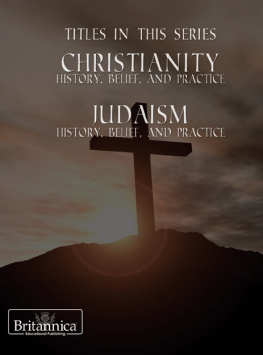
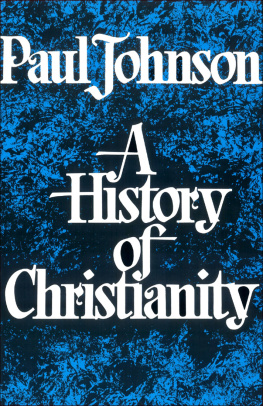
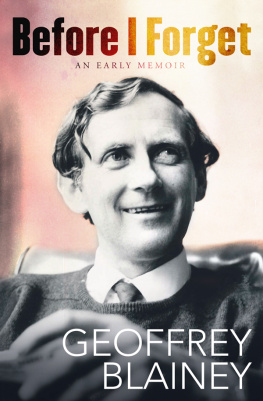
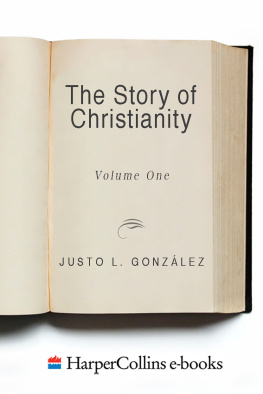
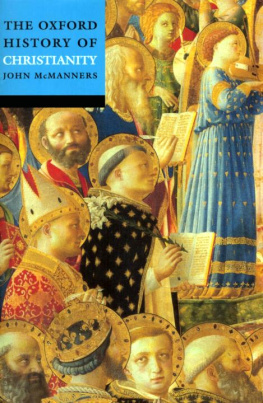
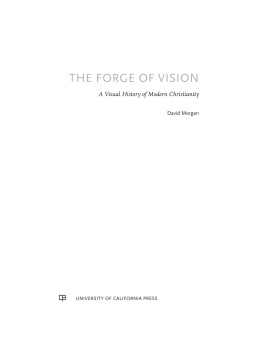


 The paper used in this publication meets the minimum requirements of American National Standard for Information SciencesPermanence of Paper for Printed Library Materials, ANSI/NISO Z39.48-1992.
The paper used in this publication meets the minimum requirements of American National Standard for Information SciencesPermanence of Paper for Printed Library Materials, ANSI/NISO Z39.48-1992.



